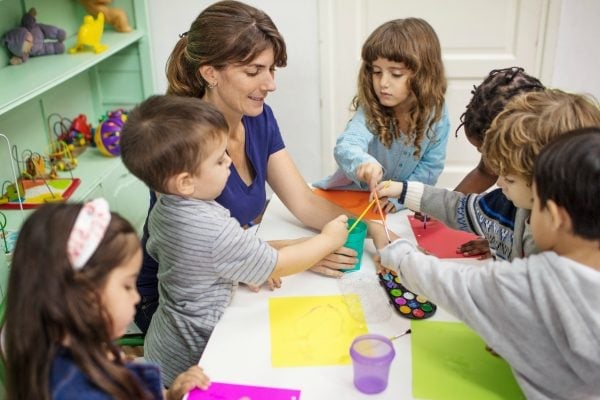
What is the more valuable job, working in retail as a shop assistant or being an educator for young children after completing a four year university degree?
They are both valuable. But, if you’re working in a shop on a Sunday – for example – you can earn double the amount of an early childhood educator working on a Monday, in one of the lowest paid professions in Australia, despite their high level of qualification.
That is why, in recognition that early childhood educators are grossly underpaid, the Australian Labor Party announced that, if they win at the Federal election on May 18, their Government would increase their remuneration by 20 per cent over an eight year period.
This would mean an estimated increase of $11,300 to their annual income.
So in light of this, we are taking a look at what exactly early childhood educators are paid as it stands, and why it is that they have been so under valued.
How much exactly are early childhood educators paid?
For early childhood educators who have earned themselves a Certificate III qualification, their base rate is a mere $22 an hour on casual rates.
For comparison, the average casual rate of a retail worker in Australia is $20 an hour, according to Payscale. Add to this weekend rates, and there is little difference between the two in terms of pay.
For early childhood educators, their pay can increase with qualification, but the income remains demonstrably low considering it is a professional sector.




Top Comments
A Cert III takes 14 weeks to 6 months at a local TAFE depending on your state.
It's not the same as a 4 year University degree.
The author is saying that if you have a 4 year uni degree and you work in the early childhood sector, you get paid $13k less than if you use that degree to work in a primary school. Kindergarten teachers whether in community centres or childcare need to have teaching degrees
For sure - but all the focus from the author here was on Cert III
Nearly all child care centres are private businesses. How do we stop any extra funding (from any government) just being absorbed by the centre? They can increase wages but then they just increase the fees for parents!!!
I think this already happens with government rebates(/grants).